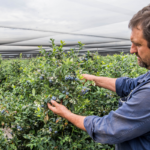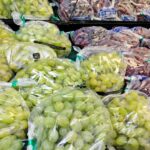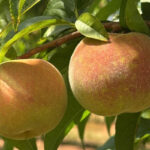Australia: Leading Italian processed tomato suppliers charged with dumping

Two Italian companies that account for half of Australia's processed tomato imports will likely have to pay preliminary dumping duties, in the wake of a recent recommendation from the Anti-Dumping Commission (ADC). 
The groups Feger and La Doria managed to escape a 2013 ruling that saw duties imposed on 103 Italian companies, but now they are now in line to pay duties of 7.5% and 5.1% respectively.
SPC Ardmona Operations Limited, which requested the investigation into the two companies, welcomed the ADC's Statement of Essential Facts (SEF) about Feger and La Doria.
"This decision is critical, not just for SPC but for Australia’s manufacturing industry and food processing sector," SPC managing director Reg Weine said in a release.
"The future of Australia’s food processing sector, horticulture industry and the livelihood of Australian farmers is being undermined as more and more cheap imports flood the market and find their way onto supermarket shelves.
"We need a level playing field to succeed, and today’s statement gives me confidence that SPC can continue to produce the quality clean, green Australian products that our consumers love and we are famous for."
The ADC also acknowledged the impact of EU subsidies on Italian canned tomato prices, highlighting that illegal dumping since 2010 has resulted in material damage to SPC, including reduced margins and declining profitability.
"It is pleasing to see that the ADC has made a decision that supports regional industry and jobs. The Australian government now has the time to consider this report and make a final decision. I trust that as they do this, they will also put the appropriate measures in place to ensure duties are uniformly applied."
Grower body Ausveg was also supportive of the recommendations, and hoped it would send a message to overseas suppliers.
"We hope that the imposition of duties will go some way to levelling the playing field for Australian producers, who must regularly compete against foreign producers with far lower costs of production, who in many cases are receiving government subsidies which further enhance their competitive advantage," Ausveg deputy CEO Andrew White said in a release.
"We are hopeful that this recommended action will send a further message to foreign businesses exporting to Australia that they cannot simply dump their cheap produce on our shores and hurt the local industry in the process.
"The effects of this illegal dumping can reach far beyond the tomato industry. If left unchecked, they could set unwanted precedents for international companies exporting to Australia that could have flow-on consequences for the Australian vegetable and potato industries."
Photo: www.shutterstock.com












































